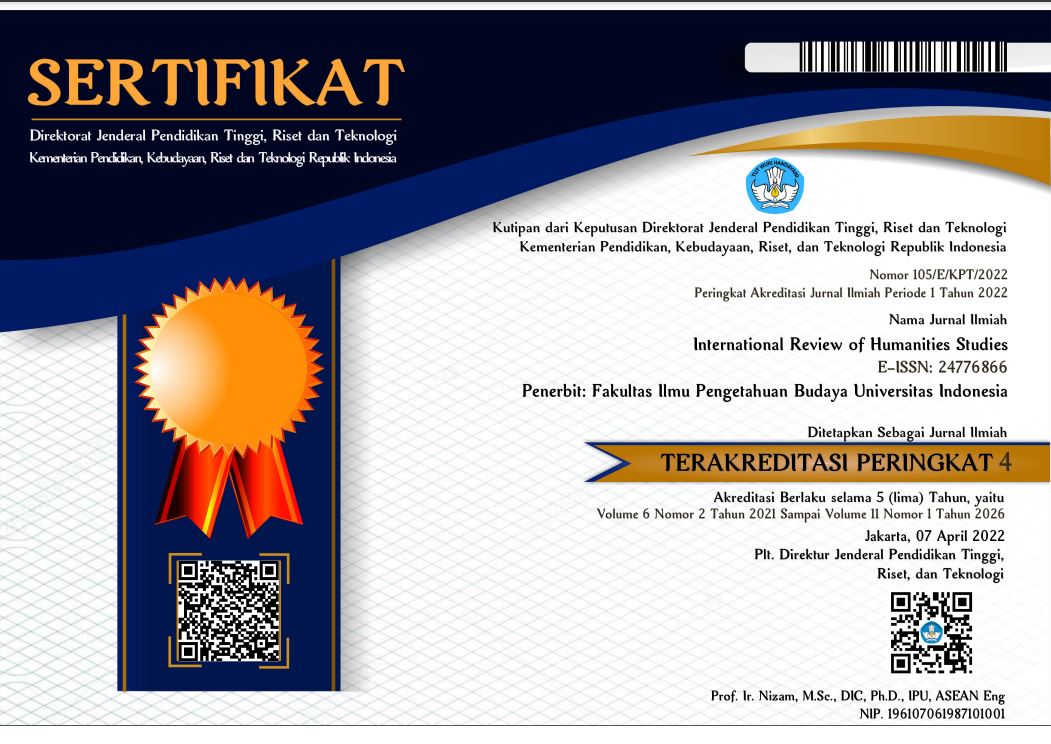International Review of Humanities Studies

Abstract
Modern African Literature grew out of the need for re-identification and reevaluation of the African cultural heritage. Despite that, colonialism and its legacies continue to have a powerful and lasting impact in Africa. Using two literary texts from East Africa, Kenya, reflecting post-colonial and neo-colonial eras, this study examines the validity of the continuation of Ecological Imperialism in Ngũgĩ wa Thiong'o's Petals of Blood (1977) and Owuor Yvonne Adhiambo's Dust (2013). An analytical appraisal of the texts reveals that the post/neocolonial nation-state, far from embodying the new hope of the masses, is a replica of the colonial master's political system negating the history of its people and perpetuating colonial authority and legacies.
References
Crosby, A.W. (1986) Ecological Imperialism: the biological expansion of Europe 900 –1900.
Cambridge: Cambridge University Press.
Foster, J. & Magdoff, F. (1998). Liebig, Marx and the depletion of soil fertility: relevance for
Today's agriculture. Monthly Review. 50. 3.
Ndege P. O. (2009). Colonialism and its legacies in Kenya. A lecture delivered during Fulbright
– Hay Group Project abroad Program. Moi University Main Campus.
Ngugi, W. T. (1977) Petals of Blood. London: Heinemann.
McTaggart, D., Findlay, C., & Parkin, M. (1995). Microeconomics. Addison-WesleyPublishing
Company, Sydney.
Ogude, J. (1999). Ngugi's Novels and African History: Narrating the Nation. Pluto Press,
London.
Owuor, Y. (2013) Dust. New york: Alfred A. Knopf.
Wriggley, C. (1965). Kenya: the patterns of economic life. In Harlow, V. & Chilver, E. M.
(Eds.), History of East Africa. Oxford: Clarendon Press. 29 (3).
Recommended Citation
Anthonia, Eguvwebere Adanma
(2023)
"ECOLOGICAL IMPERIALISM IN YVONNE OWUOR DUST NGŨGĨ WA THIONG'O’S PETALS OF BLOOD,"
International Review of Humanities Studies: Vol. 8:
No.
1, Article 18.
DOI: 10.7454/irhs.v8i1.1017
Available at:
https://scholarhub.ui.ac.id/irhs/vol8/iss1/18


